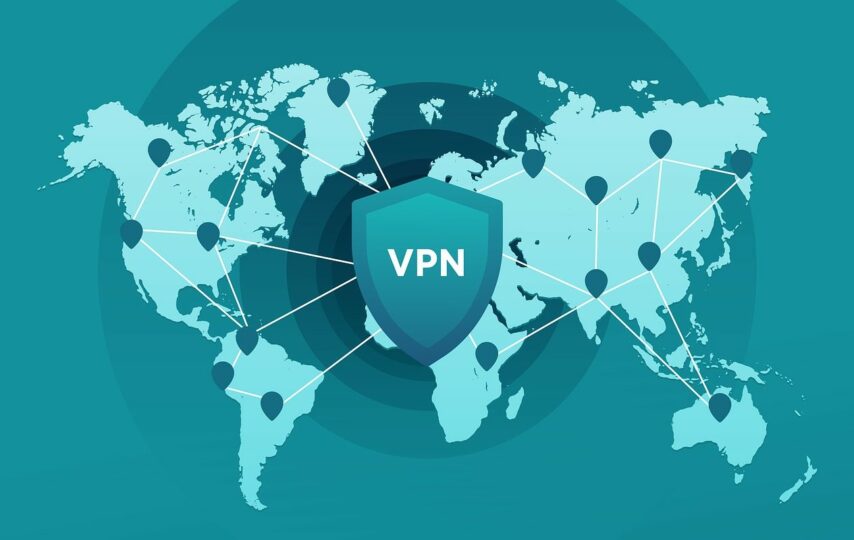Should you use a VPN app or a VPN extension? Let’s compare the advantages and disadvantages of each option to help you decide which one is best for you.
It can be confusing to decide whether to connect with a VPN app or a browser extension. Many users wonder about their differences and which one they should use.
To help you decide which one is best for your needs, let’s compare the advantages and disadvantages of a VPN extension versus a VPN client app.
What is a VPN Extension?
A VPN extension is an easy-to-use plugin that quickly connects your browser to a VPN. It’s designed to only work within the browser. It doesn’t affect other traffic on your device. It’s a lightweight alternative to a VPN app that operates at the browser level only.
What is the Function of a VPN Extension?
A VPN extension, like a VPN app, hides your IP address and keeps your browser’s activity private. However, the extension only affects internet traffic within the browser it’s installed on, such as Chrome or Firefox.
It doesn’t affect other activities on the device like gaming or using other apps. For instance, if you install a Chrome VPN extension, it only protects your internet activity on Chrome. If you switch to an app like Skype, the VPN connection won’t apply there.
Advantages of Using a VPN Extension
Here are some advantages of using a VPN extension:
- User-friendly: VPN extensions are easy to install and use, making them a good option for beginners.
- Lightweight: VPN extensions are lightweight and do not consume too much of your device’s resources.
- Cost-effective: VPN extensions are usually free or relatively inexpensive compared to VPN apps.
- Browser-level protection: VPN extensions protect only the internet traffic on the browser it’s installed on, which is ideal if you only need protection for specific browsing activities.
- Quick and convenient: VPN extensions allow you to quickly and conveniently connect to a VPN server without leaving your browser.
Disadvantages of Using a VPN Extension
These are some potential disadvantages of using a VPN extension:
- Limited protection: VPN extensions provide protection only at the browser level and don’t encrypt other internet traffic or activities outside the browser.
- Limited features: VPN extensions may have limited features compared to VPN apps, such as fewer server locations or no kill switch.
- Potential security risks: Some VPN extensions have been found to contain malware or other security vulnerabilities that could put your device and data at risk.
- Browser-dependent: VPN extensions work only on the browser they’re installed on, so you need to install separate extensions for different browsers
- May compromise your privacy: Some free VPN extensions may collect and sell your data to third-party advertisers, compromising your privacy.
What Is a VPN Client App?
A VPN client app is independent software that establishes a secure, encrypted connection between your device and a remote server. Once connected, all your online activities pass through this encrypted tunnel, providing protection against unauthorized access to your data.
Difference Between a VPN Client App and a VPN Extension
The main differences between a VPN client app and a VPN extension are as follows:
- Coverage: A VPN client app encrypts all internet traffic on your device, while a VPN extension only encrypts internet traffic within the browser it’s installed on.
- Features: VPN client apps typically offer more features and customization options than VPN extensions, such as a kill switch, multiple server locations, and advanced encryption protocols.
- Security: VPN client apps provide stronger security and encryption than VPN extensions since they encrypt all internet traffic on your device.
- Compatibility: VPN extensions are often browser-dependent and require separate installations for different browsers, while VPN client apps are compatible with various operating systems and devices.
- Performance: Since VPN extensions only encrypt browser traffic, they may offer faster connection speeds compared to VPN client apps that encrypt all internet traffic on your device.
In summary, if you need protection for all internet traffic on your device and want advanced features and stronger security, a VPN client app is the better choice. If you only need protection for specific browsing activities and prefer a lightweight and user-friendly option, a VPN extension may suffice.
Benefits of Using a VPN Client App
Here are some benefits of using a VPN client app:
- Complete privacy and security: VPN client apps encrypt all internet traffic on your device, providing complete privacy and security from unauthorized access, ISP tracking, and other online threats.
- More features and customization options: VPN client apps offer more features and customization options than VPN extensions, such as a kill switch, multiple server locations, and advanced encryption protocols.
- Stronger encryption: VPN client apps provide stronger encryption than VPN extensions since they encrypt all internet traffic on your device.
- Compatible with different devices and operating systems: VPN client apps are compatible with various operating systems and devices, including computers, smartphones, and tablets.
- Unblock geo-restricted content: VPN client apps allow you to bypass geo-restrictions and access content that is blocked in your region.
- Better performance: VPN client apps may offer better performance than VPN extensions since they provide encryption for all internet traffic, which can lead to faster and more stable connections.
Downsides of Using a VPN Client App
These are the downsides of using a VPN Client App:
- Cost: Many VPN client apps require a subscription fee or a one-time payment, unlike VPN extensions, which are often free.
- Setup and configuration: VPN client apps require a more extensive setup and configuration process than VPN extensions, which can be time-consuming and may require technical knowledge.
- Slower connection speeds: VPN client apps can sometimes slow down your internet connection, especially if you’re connecting to a server in a different country.
- VPN disconnection: VPN client apps can sometimes disconnect unexpectedly, leading to potential privacy and security risks.
- Potential for VPN leaks: In some cases, VPN client apps may experience DNS leaks, which can reveal your online activity and identity to third parties.
Overall, while VPN client apps offer more features and stronger encryption, they may not be suitable for everyone due to their cost, setup process, potential performance issues, and the need for technical knowledge.
Conclusion- VPN Extension or VPN Client App- Which One is Better?
As we have discussed, both VPN extensions and client apps have their own set of advantages and disadvantages. If your primary concern is to encrypt all your internet traffic for maximum privacy and security, then a VPN client app is the way to go.
Conversely, Suppose,f your browsing needs are more casual and you only require a way to mask your IP address without the inconvenience of installing an app on your device. In that case, a VPN extension may be the more suitable option for you.








